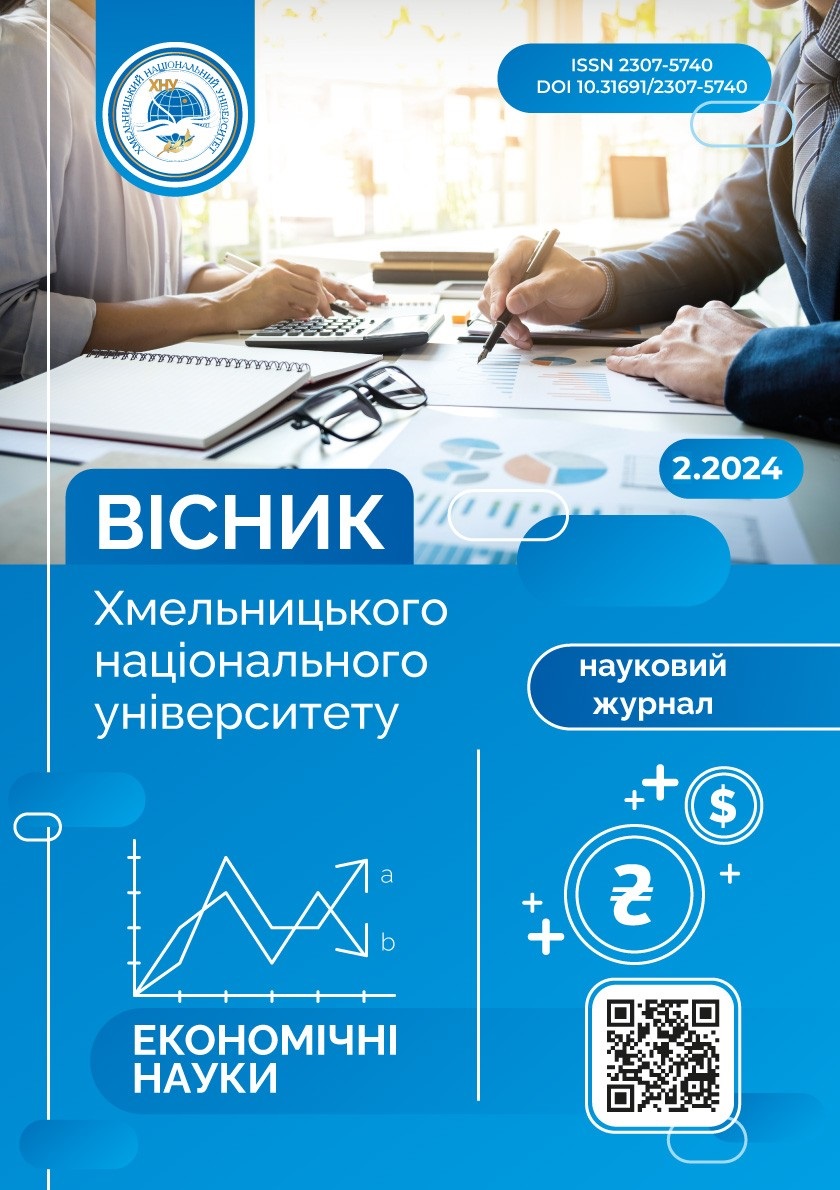PROBLEMS OF FINANCIAL MANAGEMENT OF THE REAL SECTOR OF THE UKRAINIAN ECONOMY
DOI:
https://doi.org/10.31891/2307-5740-2024-328-65Keywords:
real sector of the economy, financial management, financial resources, financial instruments, bank loans, investments, grants, support programmesAbstract
The article is concerned with studying the status and problems of financial management of the real sector of Ukraine's economy in the context of modern challenges.
Using the system of economic indicators, the author argues that the real sector of economy plays a decisive role in ensuring national development and economic security. Its negative trends are identified with the establishment of the main factors of influence. Particular attention is paid to the conditions (industry, terms, currency of lending) and results of bank lending to the real sector of Ukraine's economy in 2021-2023. The author has established the lack of interest in investment processes in the country's economy, which will have only negative consequences in the future. The author announces the state grant support for business entities ("eRobota", "Vlasna Dela") and a preferential lending programme ("Affordable Loans 5-7-9%"). The role of international financing of the real sector of Ukraine's economy in its financial management through the system of support measures of the EBRD, EIB, International Finance Corporation (IFC), KfW and the United States Agency for International Development (USAID) is determined.
The author's vision of the financial management of the real sector of the Ukrainian economy with its structural elements is proposed, in the course of which the priority problems of its financial management in the sector of regulatory and legal support and guarantee of the rights of participants, information and analytical support, organisation of relations and functioning of infrastructure, as well as availability, sufficiency of financial resources and stability of sources of their attraction are stated. As part of the search for solutions to problematic issues, attention is focused on strengthening the participation of bank lending, in particular on the basis of the latest digital technologies and "green" instruments. Proposals for state support in the area of financial management of the real sector of the economy and stimulation of national and foreign investment activity are presented.


